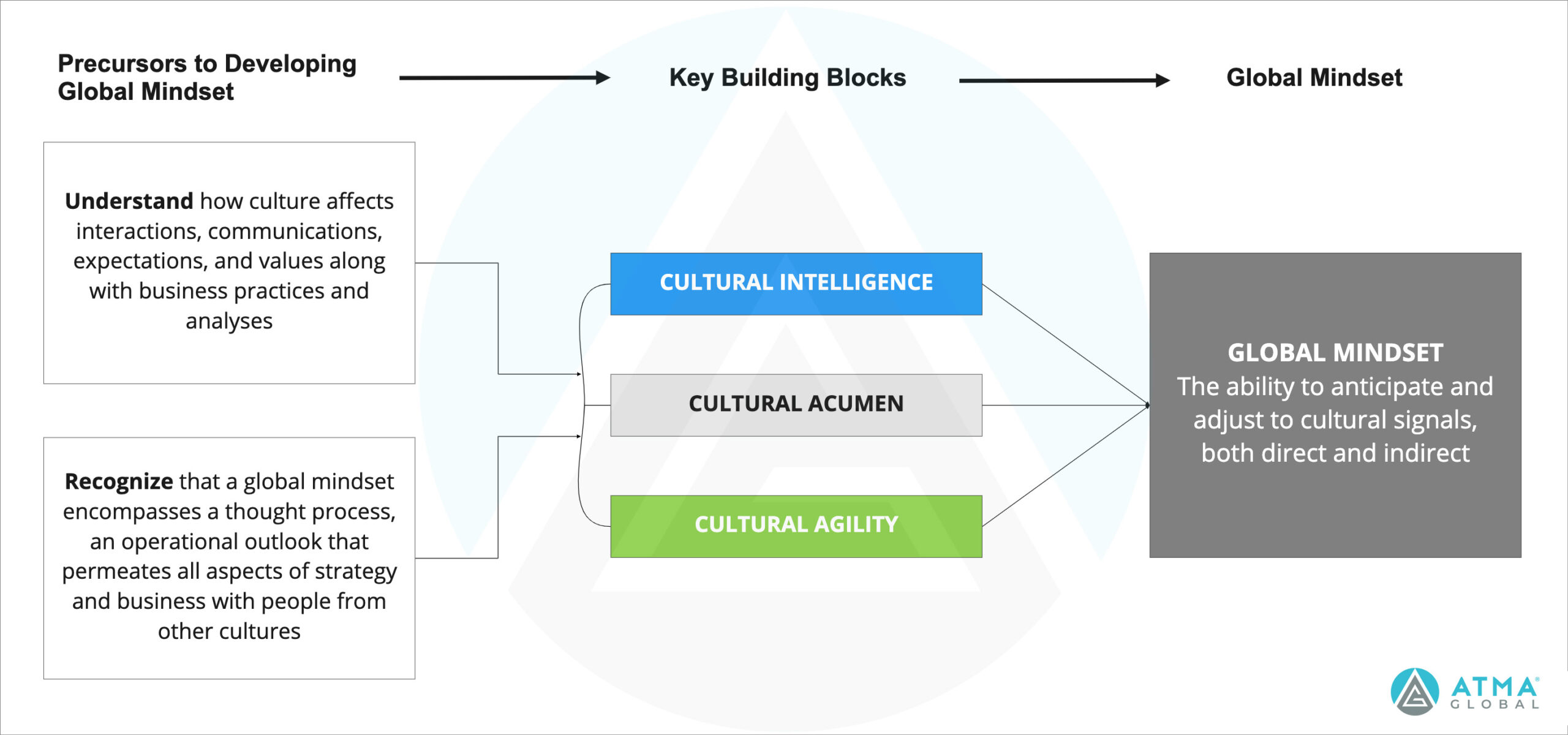Developing A Global Mindset
People have traveled and traded outside their countries for thousands of years, and global trade will outlive us all. Over time, the expansion of trade and the exchange of ideas and cultures has led to an increasingly interconnected global economy.
Every time someone visits another country, including the US, that’s part of globalization. Along with the economic benefits are the enduring advantages of cultural connections and understanding. The more we interact and learn about one another, the more we recognize our shared values.
It’s clear that the way we interact and communicate with stakeholders, including customers and colleagues from different cultures, is evolving. It’s tempting to think that business, thought processes, and communications are the same everywhere.
They’re not.
It’s more than geography. In order to operate effectively across cultures, we need to develop a global mindset.
A global mindset refers to having the ability to anticipate and reflexively adjust to cultural signals ranging from overt and direct to subtle and indirect.
Navigating the next wave of globalization, however it may evolve, will require that we develop a truly global mindset. It’s more than just going global, which is simply the action of expanding into new overseas markets.
In contrast, a global mindset encompasses a thought process, an operational outlook that permeates all aspects of strategy and business with people from other cultures. Developing a global mindset depends on the ability to integrate varying cultural and business perspectives into everyday aspects of global operations and decision-making.
Developing a global mindset requires that we understand how local cultures affect interactions, communications, expectations, and values along with business practices and analyses.
People with a global mindset have a knack for working with others from different backgrounds and managing well in multicultural settings. They’re able to leverage all that they know about their culture and the cultures of other people to react to situations in the most productive ways, all without losing sight of who they are. Having a global mindset enables them to move between cultures with confidence and intuitively adapt their behaviors to be appropriate. These are highly valuable skills when building relationships, selling, negotiating, managing, and generally doing business with people from a culture different from your own.
While this may seem to come naturally to some people, these are learnable skills using key building blocks.
The first is to acquire cultural intelligence, which is knowledge about a country and its cultures. Learn more about how a country’s culture has been shaped over time and the impact on its values, attitudes, beliefs, and practices. In-country experience and immersion adds a deeper level of knowledge and understanding.
People’s value systems and reasoning are based on the teachings and experiences of their culture. When problems arise in cross-cultural interactions, they generally stem from expectations not being met. The challenge is when we deal and interact with others—whether in our own country or globally—we expect people to behave as we do and for the same reasons.
By learning more about why people think and act as they do, we can better manage these expectations and perspectives by becoming more aware of cultural nuances. This awareness enables us to globally reorient our mindset and, most importantly, our expectations—allowing us to more effectively interpret the gestures, attitudes, and statements of the people we encounter from their cultural perspective. The experience people gain is moderated by the cultural intelligence they acquire in developing a global mindset.

The second building block toward developing a global mindset is enhancing our cultural acumen, which refers to analyzing and interpreting cultural intelligence. Become more aware of your own cultural preferences and habits and expand your repertoire of attitudes and behaviors by learning to operate in ways that may be unusual to you but highly effective when interacting with others.
The third is cultural agility, which refers to the ability to use intelligence and acumen to intuitively and seamlessly adjust to cultural signals from others. This cultural flexibility is the foundation of developing a global mindset.
It’s essential to recognize that cultural values do change over time; they’re not static entities. Around the world, values and cultures are evolving from generation to generation as people are influenced by things outside of their culture. In modern times, media and technology have probably single-handedly impacted cultures the most in the shortest time period—giving people around the world instant glimpses into other cultures, for better or for worse. Technology may bridge us, but the local culture still defines our uniqueness.
It’s essential, then, to be mindful of how culture informs how we communicate, interact, and manage projects and people.
Professionals and businesses recognize that intuitively integrating an awareness of local cultures when managing people, processes, and projects is essential for profitable success and global expansion.
Visit www.AtmaInsights.com to explore more on Developing a Global Mindset.




